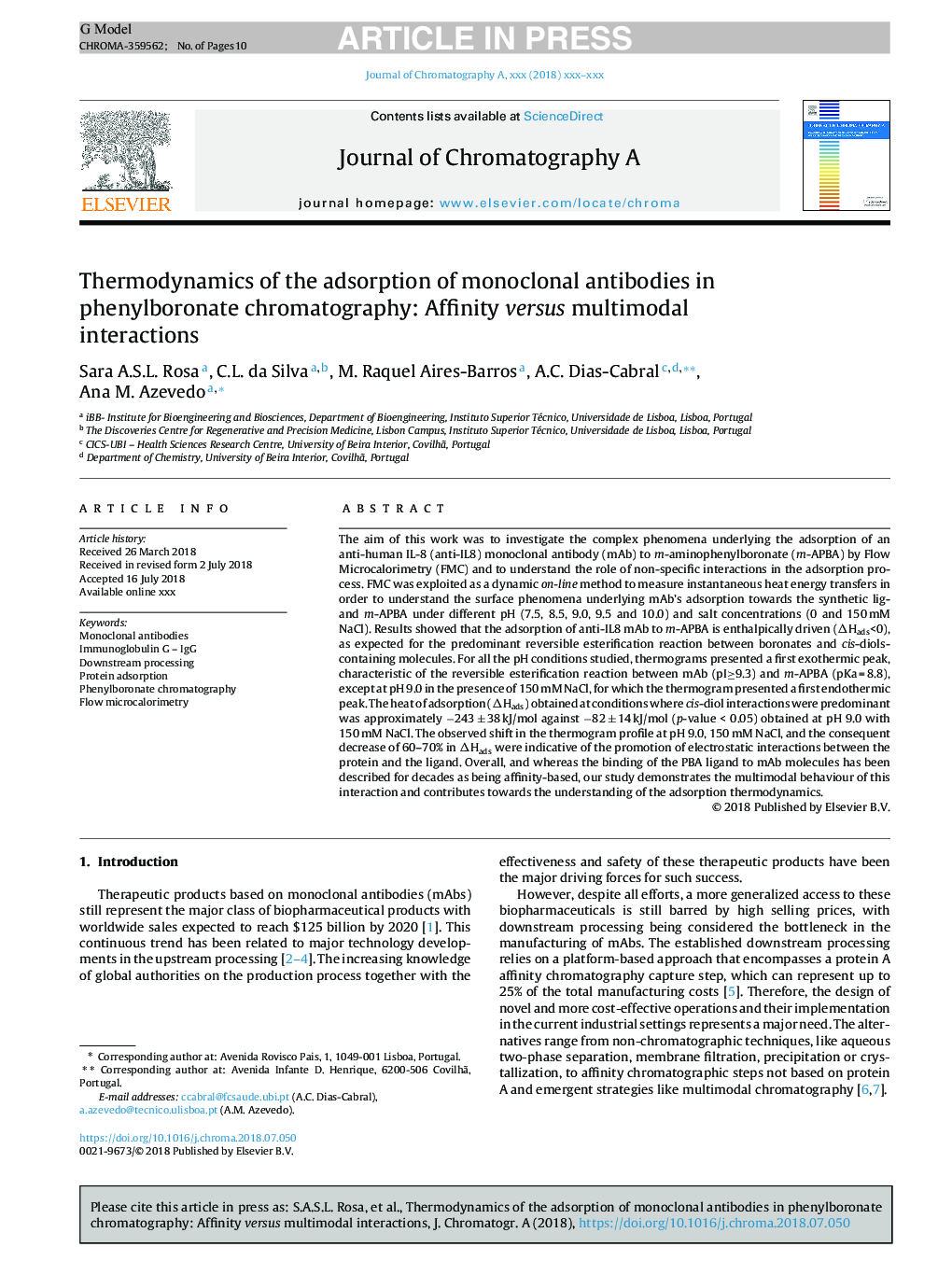| Article ID | Journal | Published Year | Pages | File Type |
|---|---|---|---|---|
| 7607311 | Journal of Chromatography A | 2018 | 10 Pages |
Abstract
The aim of this work was to investigate the complex phenomena underlying the adsorption of an anti-human IL-8 (anti-IL8) monoclonal antibody (mAb) to m-aminophenylboronate (m-APBA) by Flow Microcalorimetry (FMC) and to understand the role of non-specific interactions in the adsorption process. FMC was exploited as a dynamic on-line method to measure instantaneous heat energy transfers in order to understand the surface phenomena underlying mAb's adsorption towards the synthetic ligand m-APBA under different pH (7.5, 8.5, 9.0, 9.5 and 10.0) and salt concentrations (0 and 150âmM NaCl). Results showed that the adsorption of anti-IL8 mAb to m-APBA is enthalpically driven (ÎHads<0), as expected for the predominant reversible esterification reaction between boronates and cis-diols-containing molecules. For all the pH conditions studied, thermograms presented a first exothermic peak, characteristic of the reversible esterification reaction between mAb (pIâ¥9.3) and m-APBA (pKaâ=â8.8), except at pH 9.0 in the presence of 150âmM NaCl, for which the thermogram presented a first endothermic peak. The heat of adsorption (ÎHads) obtained at conditions where cis-diol interactions were predominant was approximately â243â±â38âkJ/mol against â82â±â14âkJ/mol (p-value < 0.05) obtained at pH 9.0 with 150âmM NaCl. The observed shift in the thermogram profile at pH 9.0, 150âmM NaCl, and the consequent decrease of 60-70% in ÎHads were indicative of the promotion of electrostatic interactions between the protein and the ligand. Overall, and whereas the binding of the PBA ligand to mAb molecules has been described for decades as being affinity-based, our study demonstrates the multimodal behaviour of this interaction and contributes towards the understanding of the adsorption thermodynamics.
Related Topics
Physical Sciences and Engineering
Chemistry
Analytical Chemistry
Authors
Sara A.S.L. Rosa, C.L. da Silva, M. Raquel Aires-Barros, A.C. Dias-Cabral, Ana M. Azevedo,
